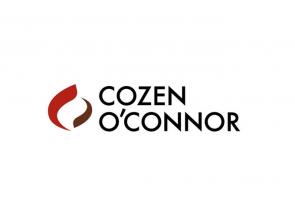Be Positive, Confident and Reasonable.
I work with many partners who tend to err far too heavily on the side of caution when dealing with their portables in their BPs. I understand the hesitation: no one wants to over-promise. However, the end result of too much caution is that partners tend to underestimate their portables, and it is often detrimental to their candidacies, i.e., fewer firms will meet with them. The best approach with respect to estimating your portables is to be positive, confident, and reasonable; and to provide estimates that you feel you will likely achieve. As discussed below, firms have their own way of making you give "worst case" estimates too, so there is no need to assist them in this endeavor via your BP - your most important marketing tool!

Every firm has its own version of a lateral hiring questionnaire ("LHQ"), and partners are generally required to complete the LHQ after their initial meeting. LHQs generally request your portable history for the last three years, and projections for anywhere from the next 12 to 36 months for each client. These projections are always categorized (though different labels are used) as low, base, and high. Thus, you will have your chance via the "low" estimate to "warn" your potential new platform that things might not go exactly as you reasonably expect. You will also have a chance to be wildly optimistic via the "high" estimate and it is a great place to showcase your potential. It may be contrary to a lawyer's natural inclination, but with respect to your high estimates, assume that everything goes right - your client does file eight new patents, or does all three of the transactions that they are currently considering (rather than just the one "sure thing".)
Your BP is your most important marketing tool, and you should us it to portray yourself in the most flattering light possible while still being reasonable. Firms will ferret out your weaknesses. You do not have to assist them!
See Related Articles:
- The Crucial Role of Business Plans in Law Firm Partner Success
- Crafting an Effective Partner Business Plan: Essential Elements for Success
- Maximize Portables in Your Business Plan in Order to Maximize Interest in You
- The Importance of a Great Business Plan
What Are Your Portables from Your Current Client Roster?
This question seems straightforward, but I have repeatedly run into two issues with partners when they are asked to provide their portables from their current client roster for the last three years. Incidentally, a three year history is what firms usually expect to see in a BP, so there is no need to go overboard and give five years (unless there is a compelling reason to do so); and one year will not be sufficient.
The first problem I encounter when I ask partners to give me their portables for the last three years is that they do not know those numbers, do not have access to those numbers, and to try to get access to those numbers could tip off their current firm to the fact that they are considering other options. Do not let this problem befall you. It is very important for you to keep track of your numbers for any client for whom you do a significant amount of work, even if you are not the billing partner (more on this topic below.)Yes, it is annoying and possibly time consuming, but keeping track of this information is critical, and it is far easier than trying to assemble it in a surreptitious manner three years from now. If, unfortunately, you are in this situation, then you need to figure out how to obtain access to this information in a discreet manner, because you will not be able to draft an effective BP without this information. You may be able to obtain this information - without arousing suspicion - if you do it slowly over time. The import here is that even if you do not want to leave your current firm now, assemble this information so that if you want to leave your firm in a year, you will be ready.
The second problem I encounter with partners is that they do not know which clients to include in their portables. For example, a partner may have brought a client to his firm, but due to some long standing and archaic policy, he does not get full credit (or any credit) for this client because some 90 year old partner once had lunch with this client back in 1965! Alternatively, I have encountered partners who did not bring a particular client to their firms but who do the vast majority, if not all, of the client's work, and have developed extremely strong relationships with the client. In short, these clients "belong" to these partners even though - on paper at their current firms - these clients still "belong" to someone else. I often speak with partners who do not know how to account for these clients when discussing their portables. It is impossible to explain these situations in the BP because the facts are often convoluted; and a BP should be streamlined. Moreover, even if a partner can succinctly explain any given situation, he is unlikely to come off the explanation looking very good. He will appear to be complaining where he has not gotten credit; and he will appear to be scheming and ungrateful where he has taken over relationships with clients.
How do you present these clients in your BP? You ask yourself one very simple question. Will these clients come with you to your new platform? If the answer is yes, then you should include these clients in your history for the last three years, and your projections for the next year. You can leave the "back story" regarding these clients to your in-person meetings.
What Are Your Potential Portables from Your Current Client Roster?
Are you maximizing your portables from your current client roster? Often I speak with partners whose very reason for commencing a search for a new platform is premised upon the fact that their existing clients have business that they cannot service. Sometimes partners cannot service their clients' other needs because their current firms do not have the resources. For example, a firm may not have a patent group and so the partner is precluded from servicing his clients' intellectual property matters. Worse still, is the case where the partner's current firm does have departments that could service his clients' other needs, but the partner has no confidence in these departments and does not want to jeopardize his own relationships with his clients by recommending his partners - in whom he has no confidence -to his clients. Either scenario is bad because it means that the partner is not maximizing portables from his current client roster, and should probably move to a firm where he can fully service all his clients' needs with confidence.
These potential portables must be included in the BP because these portables represent real numbers that you can bring to your new platform. Ideally (and again this involves keeping track and/or doing research if you have failed to keep track), you should review all of the matters that you have had to refer to other attorneys over the last three years, and try to attach a realistic number to each of those matters. Once you have a number for each of the preceding three years, you should take its average and use that number as the estimate for how much your business will increase if you are able to find a platform where you can service all your clients' needs.
If you have not actually had to refer business to other firms, then you may want to have a conversation with each of your clients about what other services you could provide for them if you had the proper platform. They may tell you that they are happy with their current representation, and that really, barring some dramatic change, they could not foresee giving you additional work. On the other hand, if you have a great relationship with them, you may be very pleasantly surprised to discover that they would love to use you for a lot more of their work if you were with a platform that could handle it. It cannot hurt to have this conversation with your clients, and your potential portables (which you must add to your BP) could increase significantly.
How Will You Expand Your Client Roster with a New Platform?
We are now leaving the realm of your current client roster (and the place where you can estimate real numbers); and entering new territory which potential employers scrutinize heavily and with a decent amount of skepticism. Hence, you need to be as specific as possible, and inspire trust and confidence.
I regularly see BPs where partners endlessly discuss all the great clients that they will add to their roster once they have the right platform. Often these partners even give the names of the entities and the titles (but not the identities of course) of their contacts at these entities. Make no mistake: it is wholly insufficient to discuss all the great things you will do "someday" in your BP. It is imperative that you have a section in your BP where you discuss the ways in which a new platform will allow you to increase your client roster and portables, but you must already have begun to take steps to make this happen so that you can add real information to your BP. If you have contacts at various entities that you cannot presently service due to the limitations of your present platform, then meet with those contacts at those entities and determine how much business you could reasonably expect from them if you moved to a different platform.
I once worked with a construction partner whose portables were not particularly compelling, but who had a lot of potential portables if he could find a platform that could service more sophisticated work. His immediate goal was to secure a very big international real estate developer as his client; and he knew that in order to do so, he needed to move to an AmLaw 100 firm. This partner had many meetings with this international real estate developer, and when he drafted his BP, he was able to include very specific information about the amount of business that this client would give him if he was able to secure the proper platform. His search was very successful and this partner - based upon the estimated portables of a client with whom he had never worked - was able to make the transition from a very small real estate boutique to a well-known AmLaw 100 firm.
The moral of the story is that you must not wait to meet with these potential clients. If you meet with them now, and get some indication that they will work with you if you make a move to a platform that can handle their business, then you can include these clients in your BP; and thereby increase your estimated portables. Plus, you differentiate yourself immediately from the "dreamers" who ramble endlessly about how things "will be someday" by demonstrating that you have initiative and have already taken action.
How Will You Cross Sell Your Services to Your New Platform's Clients and Increase Their Profitability?
The section of your BP that involves how you can cross sell your services to your new platform's existing clients is the only place in the BP where it will be impossible for you to provide a definite estimate. However, it is imperative that you include this section for two reasons. First, it is yet another opportunity for you to expound upon your unique skills and experience, which just may be lacking at your potential new platforms. For example, your potential new platforms probably have a corporate group. However, they may not have any partners who have an undergraduate degree in Computer Science and whose clients are mainly in the technology sector. Maybe your potential new platforms have been trying to find a way to get more corporate work out of their intellectual property clients? The point is that you do not necessarily know exactly what is afoot at your new potential platforms, so it is always a good idea to market yourself effectively and thoroughly.
The second reason you want to include this section is because you want to demonstrate that you are at the very least thinking about your potential new platform's existing clients, and how you might be of service to them, and increase your new platform's overall profitability.
Conclusion
It is critical that you provide the highest possible number for your portables in your BP. How can you achieve this goal? First, you must be positive, confident, and provide reasonable portable estimates for each client. Do not be afraid of over-promising. Second, you must include all clients who you reasonably believe will come with you to your new platform. Do not worry about whether they are technically "your" clients; only concern yourself with whether they will follow you. Third, you must include a number that equals the average amount of how much business you have lost over the last three years because you could not accommodate such business at your current firm. This number represents your potential portables from your current client roster, and it is a concrete number based upon historical information. Fourth, you must include specific information about how you will expand your current client roster once you have the proper platform. With respect to this section, you must have taken actual steps to meet with these potential clients so that you can give concrete estimates regarding how much business you can reasonably expect to receive from them once you have a platform that can service their needs. Lastly, you must discuss your unique skills and experience and how you plan to cross-sell such skills and experience to your new platform's existing client base, and thereby generate additional revenue for your new platform.
About Harrison Barnes
Harrison Barnes is a prominent figure in the legal placement industry, known for his expertise in attorney placements and his extensive knowledge of the legal profession.
With over 25 years of experience, he has established himself as a leading voice in the field and has helped thousands of lawyers and law students find their ideal career paths.
Barnes is a former federal law clerk and associate at Quinn Emanuel and a graduate of the University of Chicago College and the University of Virginia Law School. He was a Rhodes Scholar Finalist at the University of Chicago and a member of the University of Virginia Law Review. Early in his legal career, he enrolled in Stanford Business School but dropped out because he missed legal recruiting too much.
Barnes' approach to the legal industry is rooted in his commitment to helping lawyers achieve their full potential. He believes that the key to success in the legal profession is to be proactive, persistent, and disciplined in one's approach to work and life. He encourages lawyers to take ownership of their careers and to focus on developing their skills and expertise in a way that aligns with their passions and interests.
One of how Barnes provides support to lawyers is through his writing. On his blog, HarrisonBarnes.com, and BCGSearch.com, he regularly shares his insights and advice on a range of topics related to the legal profession. Through his writing, he aims to empower lawyers to control their careers and make informed decisions about their professional development.
One of Barnes's fundamental philosophies in his writing is the importance of networking. He believes that networking is a critical component of career success and that it is essential for lawyers to establish relationships with others in their field. He encourages lawyers to attend events, join organizations, and connect with others in the legal community to build their professional networks.
Another central theme in Barnes' writing is the importance of personal and professional development. He believes that lawyers should continuously strive to improve themselves and develop their skills to succeed in their careers. He encourages lawyers to pursue ongoing education and training actively, read widely, and seek new opportunities for growth and development.
In addition to his work in the legal industry, Barnes is also a fitness and lifestyle enthusiast. He sees fitness and wellness as integral to his personal and professional development and encourages others to adopt a similar mindset. He starts his day at 4:00 am and dedicates several daily hours to running, weightlifting, and pursuing spiritual disciplines.
Finally, Barnes is a strong advocate for community service and giving back. He volunteers for the University of Chicago, where he is the former area chair of Los Angeles for the University of Chicago Admissions Office. He also serves as the President of the Young Presidents Organization's Century City Los Angeles Chapter, where he works to support and connect young business leaders.
In conclusion, Harrison Barnes is a visionary legal industry leader committed to helping lawyers achieve their full potential. Through his work at BCG Attorney Search, writing, and community involvement, he empowers lawyers to take control of their careers, develop their skills continuously, and lead fulfilling and successful lives. His philosophy of being proactive, persistent, and disciplined, combined with his focus on personal and professional development, makes him a valuable resource for anyone looking to succeed in the legal profession.
About BCG Attorney Search
BCG Attorney Search matches attorneys and law firms with unparalleled expertise and drive, while achieving results. Known globally for its success in locating and placing attorneys in law firms of all sizes, BCG Attorney Search has placed thousands of attorneys in law firms in thousands of different law firms around the country. Unlike other legal placement firms, BCG Attorney Search brings massive resources of over 150 employees to its placement efforts locating positions and opportunities its competitors simply cannot. Every legal recruiter at BCG Attorney Search is a former successful attorney who attended a top law school, worked in top law firms and brought massive drive and commitment to their work. BCG Attorney Search legal recruiters take your legal career seriously and understand attorneys. For more information, please visit www.BCGSearch.com.
Harrison Barnes does a weekly free webinar with live Q&A for attorneys and law students each Wednesday at 10:00 am PST. You can attend anonymously and ask questions about your career, this article, or any other legal career-related topics. You can sign up for the weekly webinar here: Register on Zoom
Harrison also does a weekly free webinar with live Q&A for law firms, companies, and others who hire attorneys each Wednesday at 10:00 am PST. You can sign up for the weekly webinar here: Register on Zoom
You can browse a list of past webinars here: Webinar Replays
You can also listen to Harrison Barnes Podcasts here: Attorney Career Advice Podcasts
You can also read Harrison Barnes' articles and books here: Harrison's Perspectives
Harrison Barnes is the legal profession's mentor and may be the only person in your legal career who will tell you why you are not reaching your full potential and what you really need to do to grow as an attorney--regardless of how much it hurts. If you prefer truth to stagnation, growth to comfort, and actionable ideas instead of fluffy concepts, you and Harrison will get along just fine. If, however, you want to stay where you are, talk about your past successes, and feel comfortable, Harrison is not for you.
Truly great mentors are like parents, doctors, therapists, spiritual figures, and others because in order to help you they need to expose you to pain and expose your weaknesses. But suppose you act on the advice and pain created by a mentor. In that case, you will become better: a better attorney, better employees, a better boss, know where you are going, and appreciate where you have been--you will hopefully also become a happier and better person. As you learn from Harrison, he hopes he will become your mentor.
To read more career and life advice articles visit Harrison's personal blog.





